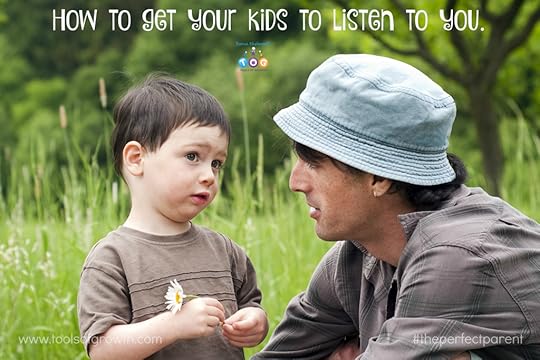Two Top Parenting Challenges – Part 2
Last week we discussed one of the two top parenting challenges I am asked about most often:
How can I get my child to stop complaining?
Now let’s explore the second one:
WHY don’t my children listen to me, and HOW can I get them to start doing so.
This is, undoubtedly, a big concern with many parents. You’ve said the same thing over and over, and perhaps your children pretend like they don’t hear you, or they simply ignore you. Or maybe they don’t hear you because they are in a trance with their computer or mobile gadget. So first and foremost…
Be empathetic.
Put yourself in their shoes. If you were engrossed in something, wouldn’t your hearing be affected? Who wants to start doing homework, when you’re in the middle of texting with friends? Shifting gears and keeping track of time are both challenging for kids. And for a parent in the midst of a busy day, thinking of the tasks at hand and watching the clock at the same time leads to frustrations: “If he doesn’t finish homework by 6, he won’t make it to basketball practice on time, which means the coach will make him stay late and talk to us afterward about getting to practice on time. And that means we will be home late for dinner, and bedtime will be pushed off by an hour! Ugh!” Of course, the thought of that gets you riled up!
But kids don’t have that sort of foresight, so don’t take them there. It will only cause confusion and aggravation. If the aggravation is in your head, take two deep breaths and drink a few sips of water and then…
Make eye contact.
Use the magic of touch, if you are trying to get their attention. Touch them lovingly on the arm, and be sure to make eye contact when giving them direction. Science confirms that when we use our senses to connect with children, we can transform a communication breakdown into a communication breakthrough.
To make eye contact, lift your child’s chin up, or, better yet, come down to eye level to open the door to effective communication. Now you can…
Reason calmly.
“Homework before basketball practice—you know that. Please get started now. I’m sure you want to get to practice on time. You know how your coach gets when we show up late.” Mapping out the first steps and reasoning through them helps kids shift gears more easily, by letting them see only the task at hand. Keep in mind that your child may have had a long day at school or just simply needs to unwind. So whatever you say, however you reason, do it calmly and kindly. Reasoning shifts an impulsive reaction to an engaged, mindful, response. And that is what you want!
Remember, being a parent is not a dictatorship, it is a director-ship. When we direct kids mindfully, we are more likely to instill habits that will stick in the long term. And, most importantly, if you want kids to listen to you, be sure you champion that by…
Listening to them.
We discussed mirror neurons in the last blog. Yes, kids mirror the behaviors that they see. Be aware when kids are talking to you. Are you listening to them mindfully? Are you paying attention and responding immediately? Are they often tugging at you or speaking to you while you are busy on the phone or with your mobile gadget? Paying attention to how you well you listen to them is the simplest way to create good listening habits. Remember you are a rule model, just as much as you are a role model.
In Joy!
The post Two Top Parenting Challenges – Part 2 appeared first on Tools of Growth.




